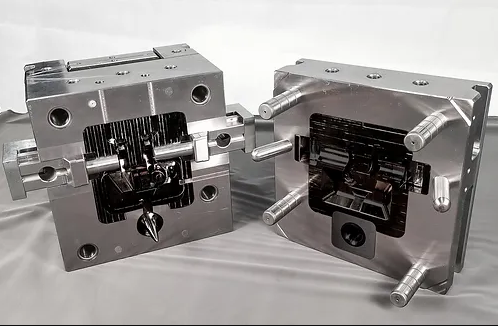Casting is a widely used manufacturing process that involves pouring molten metal into a mold to obtain a desired shape. Over the years, various casting techniques have been developed to improve the quality and efficiency of the casting process. One such technique that has revolutionized metal casting is squeeze casting. This article explores the concept, advantages, and applications of squeeze casting.
Concept of Squeeze Casting:
Squeeze casting, also known as liquid metal forging, is a hybrid casting process that combines the advantages of both casting and forging. It involves introducing the molten metal into a preheated die cavity and applying pressure during solidification to ensure a dense and defect-free product. The pressure can be applied through a hydraulic press, mechanical press, or any other suitable means.
Advantages of Squeeze Casting:
1. Enhanced Mechanical Properties: Squeeze casting allows for the production of components with improved mechanical properties compared to conventional casting methods. The application of pressure during solidification ensures a fine-grained microstructure, resulting in enhanced strength, ductility, and fatigue resistance.
2. Reduced Porosity: Squeeze casting significantly reduces the porosity of the final product. The applied pressure helps eliminate gas porosity, shrinkage porosity, and other casting defects. This leads to higher structural integrity and increased reliability of the components.
3. Complex Shapes: Squeeze casting enables the production of complex-shaped components with high dimensional accuracy. The use of a preheated die cavity and pressure application ensures precise filling of the mold, even in intricate designs. This makes squeeze casting suitable for manufacturing components with intricate geometries.
4. Improved Surface Finish: The application of pressure during solidification results in improved surface finish of the cast components. This eliminates the need for additional machining operations, reducing manufacturing time and costs.
5. Cost-effective: Squeeze casting offers cost advantages compared to traditional casting methods. The reduced porosity and improved surface finish eliminate the need for additional operations such as welding or machining. This leads to lower material wastage, reduced labor costs, and overall cost savings.
Applications of Squeeze Casting:
Squeeze casting finds widespread applications in various industries, including aerospace, automotive, defense, and electronics. Some notable applications include:
1. Aerospace Components: Squeeze casting is extensively used in the production of critical aerospace components such as turbine blades, engine components, and structural parts. The high mechanical properties and reduced porosity make squeeze cast components suitable for demanding aerospace applications.
2. Automotive Parts: Squeeze casting is employed in manufacturing automotive components such as pistons, cylinder heads, and suspension parts. The improved mechanical properties and complex shape capabilities make squeeze cast parts ideal for the automotive industry.

3. Defense Equipment: Squeeze casting is utilized in the production of defense equipment such as gun barrels, missile bodies, and armor plates. The enhanced strength and dimensional accuracy of squeeze cast parts ensure optimal performance and reliability in defense applications.
4. Electronics Packaging: Squeeze casting is also used in the manufacturing of electronic components like heat sinks, connectors, and housings. The precise filling of intricate molds and improved surface finish are crucial for effective heat dissipation and electrical performance.
Conclusion:
Squeeze casting has emerged as a revolutionary metal casting technique that offers numerous advantages over traditional casting methods. With enhanced mechanical properties, reduced porosity, complex shape capabilities, improved surface finish, and cost-effectiveness, squeeze casting has found a wide range of applications across industries. As technology continues to advance, squeeze casting is expected to play a significant role in the production of high-quality components in the future.
-

- Thixomolding-Teile aus Magnesiumlegierung für Sauerstoff-Saugmaschinengehäuse
-

- Fahrradteile und Komponenten aus Magnesiumlegierung für Laufräder für Kinder
-

- Kundenspezifische Gießereiprodukte hochpräzise Druckgussteile für integrierte E-Bike-Rahmen
-

- Maßgeschneiderte Thixomolding-Teile UAV-Komponenten mit CNC-Bearbeitung und Oberflächenbehandlung
-

- Maßgeschneiderte Metallteile für das Macbook-Mittelbrett hergestellt
-

- Integriertes 3-Speichen-Laufrad für MTB mit CNC-Bearbeitung und Oberflächenbehandlung

 0086-750-5616188
0086-750-5616188 +86 13392089688
+86 13392089688 sales@zhongmei-tech.com
sales@zhongmei-tech.com







